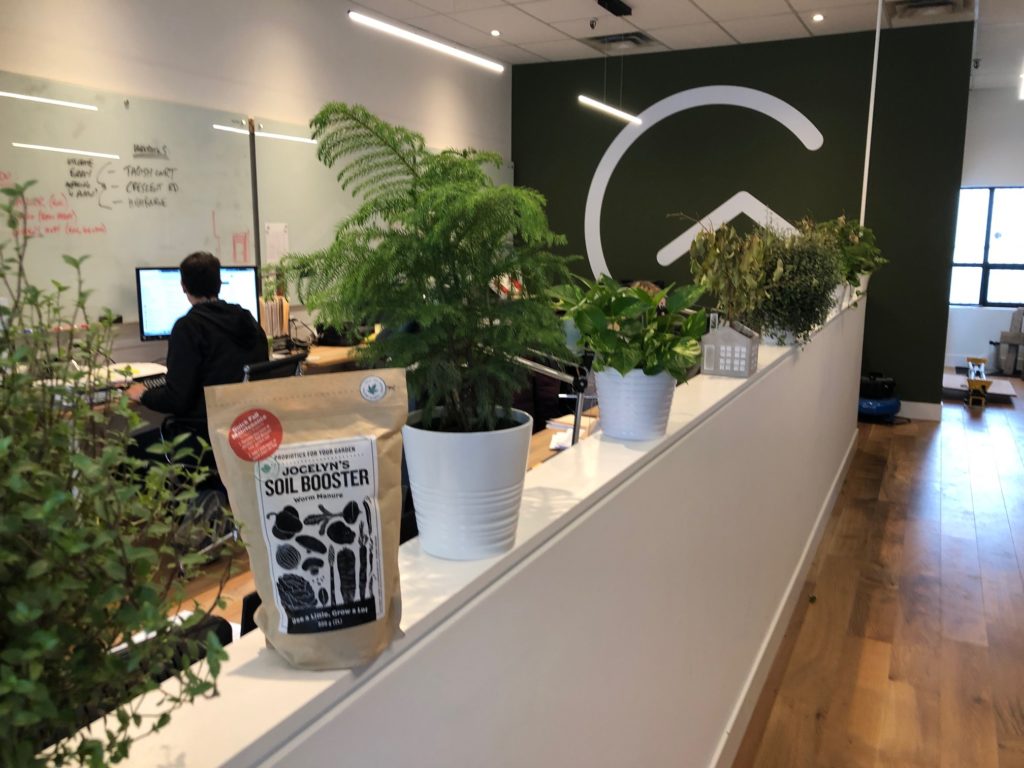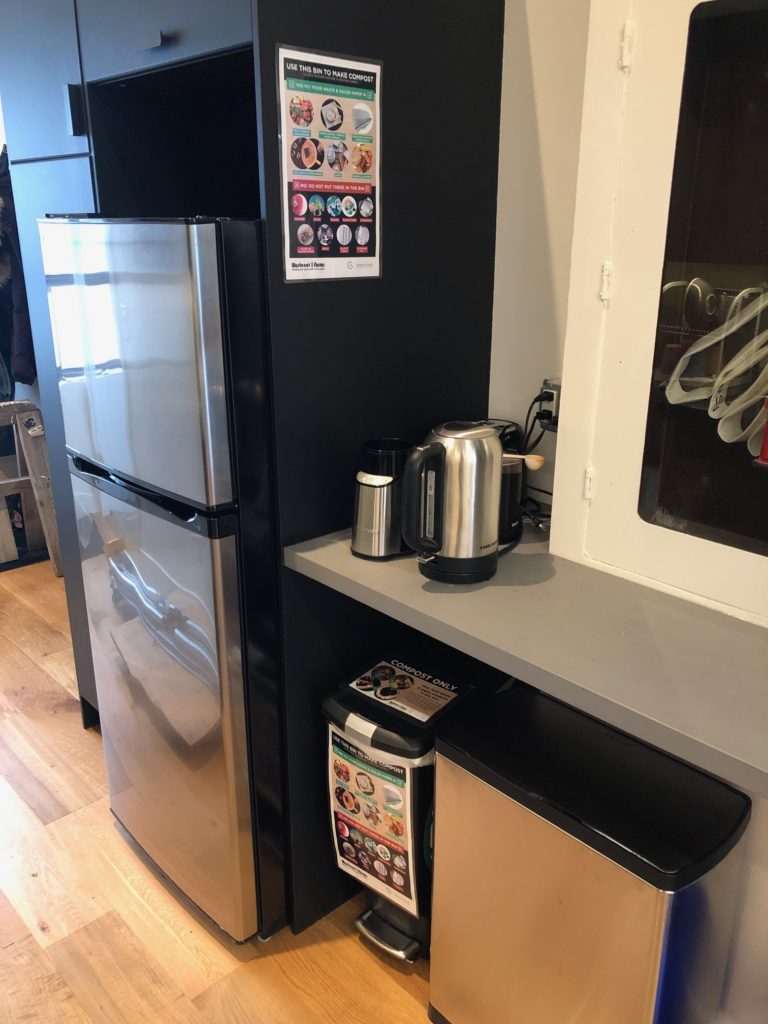Saving the biosphere one worm at a time

Greening Homes recently met with Jocelyn Molyneux of Wastenot Farms, who got us fired up about vermicomposting at the office. Jocelyn, through her company, has developed a win-win relationship with offices, such as ours, where she collects organic waste in exchange for the best plant food possible – to be used on office plants or distributed among staff for home use.
We’re in! Jocelyn collects our office vegetable and fruit scraps to feed her worms on her farm. She brings us the worm manure. Easy peasy! This feeds more than just worms and plants. It supports a circular economy.
Greening Homes prides itself on reducing environmental impact one house at a time. We’ve just added one worm at a time! Think that one worm doesn’t do much? Think again. Jocelyn explains why….
GH – How did you get involved in vermicomposting?
JM – I had a chance to buy some of these magical composting worms at an EcoFair when I was in my early twenties; I’ve always been fascinated with garbage and recycling. I couldn’t believe how easy it was for these worms to transform our food waste into rich, lush soil. At that same time I was overseeing a Workplace Sustainability program and many office managers told me they would love to have compost bins but couldn’t find a company to provide the service. That was my lightbulb moment – applying large-scale vermicomposting as a solution for commercial food waste!
GH – How does vermicomposting work?
JM – Vermicomposting works primarily through the process of worms digesting microbes that digest decomposing food waste. Worms are considered “Mother Nature’s intestines”; their guts are filled with microbes – primarily bacteria and fungi but other types too – and these little guys go to work extracting nutrients for the worm. In doing so they metabolize the food waste and convert it into the soil product known as worm castings. Essentially each worm is a tiny bioreactor converting nature’s waste into nature’s resources.

GH – Why use worm manure for your plants?
JM – Worm manure, or castings, are the best of all natural plant food out there. Plants depend on the microbes that are fostered inside the worms. Think of microbes as the “Uber Eats delivery app”. They provide an on-demand nutrient delivery system based on the plants’ specific needs. Plants communicate their needs by releasing chemical signals and microbes respond by bringing the required nutrients to the root zone for the plant to absorb. In exchange, the plant releases sugars to feed the microbes and grow their populations. The microbes and the plants depend on each other for successful survival, which is called a synergistic relationship.
Most soil is missing the microbial life required for success, either through neglect or previous use of chemical fertilizer that kill microbes. Worm manure replenishes the microbial diversity in the soil so plants get the nutrition they need – naturally!
GH – What are the additional benefits of vermicomposting?
JM – Diverting waste from landfill is a big benefit of vermicomposting, upcycling that material into a valuable resource rather than having it rot and create methane gas which contributes to climate change. Vermicomposting is a type of regenerative agriculture, which is all about renewing our environmental ecosystems through the ways we grow our food, which makes for healthier soil, healthier people and a healthier planet.
GH – How can an office or home get involved in vermicomposting?
JM – Lots of people have their own home worm composting bin, kept under the sink or in the basement. With weekly attention, this is a great way to compost veggie and fruit scraps, especially for a condo or apartment that doesn’t have a green bin. Our compost collection service at Wastenot Farms is geared towards offices that don’t necessarily want to keep a worm bin on staff. We take care of the composting at our farm, collecting the food waste from the facility site and returning the finished worm manure back to the employees. It’s an easy-to-implement sustainability initiative that engages all employees in creating a positive environmental impact.

Wastenot Farm’s vermicomposting bin easily fits along side our recycling bin.
GH – If anyone is interested in office composting, how can they reach you?
JM – Please check our website: www.wastenotfarms.com and sign up for our free 1 month trial!